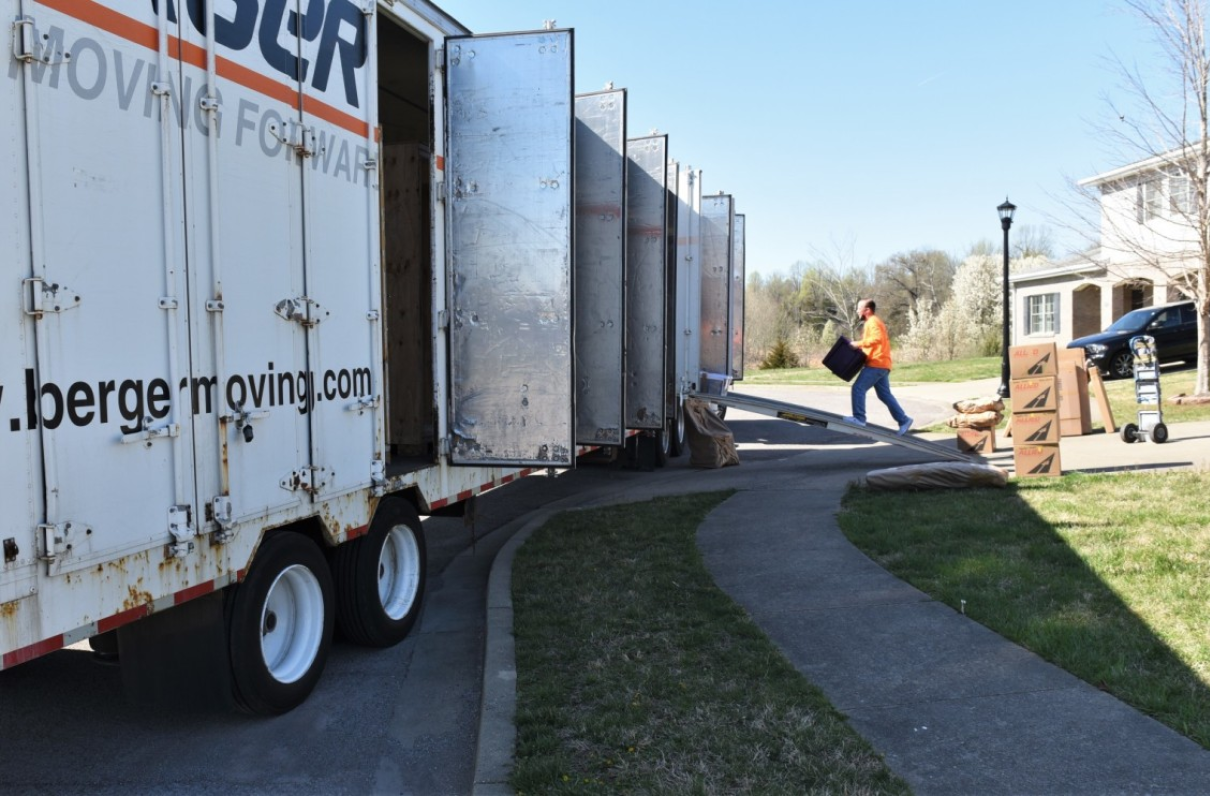Editor’s note: This article by Amanda Miller originally appeared on Military.com, a leading source of news for the military and veteran community.
Beginning in September, troops and their families at 16 more military bases will begin doing local household goods shipments through a new private manager.
U.S. Transportation Command announced Tuesday that HomeSafe Alliance, the Defense Department's overarching contractor for privatized household goods moves, will start arranging the local moves as well as the first interstate moves under the new system.
After years of delays that resulted from protests of the contract award, followed by setbacks in the development of two apps, HomeSafe Alliance began arranging "test moves" from 14 locations earlier this year. These moves stayed within their local areas to test out the process, including the new digital apps in which families and the moving companies will plan, document and track all the aspects of their permanent change of station, or PCS, moves.
HomeSafe Alliance had completed 94 local moves within a 50-mile radius of their origin as of Aug. 20, according to the announcement. The moves from the 16 new locations will also stay in their local areas.
[RELATED: Here Are Your September 2024 Commissary Sidewalk Sale Dates]
In its announcement Tuesday, Transportation Command added the following 16 installations across nine states, where household goods offices will start to issue task orders for local moves within the new system in September:
- Fort Huachuca, Arizona
- Presidio of Monterey, California
- Naval Weapons Station Seal Beach, California
- Naval Postgraduate School in Monterey, California
- Marine Corps Air Station Miramar, California
- Fort Carson, Colorado
- Peterson Space Force Base, Colorado
- United States Air Force Academy, Colorado
- Fort Stewart, Georgia
- Hunter Army Airfield, Georgia
- Fort George G. Meade, Maryland
- Fort Detrick, Maryland
- Minot Air Force Base, North Dakota
- Carlisle Barracks, Pennsylvania
- Marine Corps Air Station Beaufort, South Carolina
- Fort Gregg-Adams, Virginia
HomeSafe Alliance will also take over arranging some interstate moves, including moves that originate in Norfolk, Virginia, and go to Seattle; Jacksonville, Florida; or San Diego; and from San Diego to Seattle, according to Transportation Command.
[TAKE ACTION: Support Military Family Access to Children’s Hospitals]
With the new additions, in September, the command expects HomeSafe Alliance's involvement in what amounts to about 4% of household moves that it would conduct in an average September once it takes over all military household goods shipments.
The command said it plans to "add more installations and increase shipment volume totals monthly" and to reach "full domestic implementation by spring 2025," with international shipments to begin under the system no earlier than September 2025.
Meanwhile, the American Trucking Associations' Moving and Storage Conference is headed to Washington, D.C., in September to weigh in on issues including the rollout of the so-called Global Household Goods Contract that gave the responsibility for arranging military moves, including the hiring of movers, to HomeSafe Alliance.
A smooth rollout of the contract is a top concern for the moving industry.
Dan Hilton, executive director of the Moving and Storage Conference, said in an email to Military.com that his association has pushed for more oversight of the new contract, partly in the form of a requirement currently included in the House version of the fiscal 2025 National Defense Authorization Act, which passed the full House in June.
The bill would require Transportation Command to assess "the performance of contractors ... in meeting the applicable requirements for capacity and quality" during the next peak moving season of May through August 2025, and to provide a report to the House and Senate Armed Services committees.
[RELATED: Do Military Families Really Need to Move So Much?]
Transportation Command acknowledged in an email to Military.com that the new system under HomeSafe Alliance "is disrupting the legacy moving industry." In response, some moving companies have banded together into a new organization, Movers for America, which has publicly opposed aspects of the new plan.
Complaints have included rates the members deemed too low and a new rule bringing household moves under the Service Contract Act, or SCA, which they interpreted as requiring drivers to become company employees in an industry in which many are truck owner-operators or local loading teams that work for more than one company.
The act sets rules for how much government contractors have to pay their service workers.
Hilton said the association is "working with the Department of Labor and [Transportation Command] to assist in drafting guidance to assist movers in understanding the impact of the SCA and how best to comply."
Support Military Spouses
Donate to The MOAA Foundation and support MOAA’s efforts to help military spouses in their career journeys.
